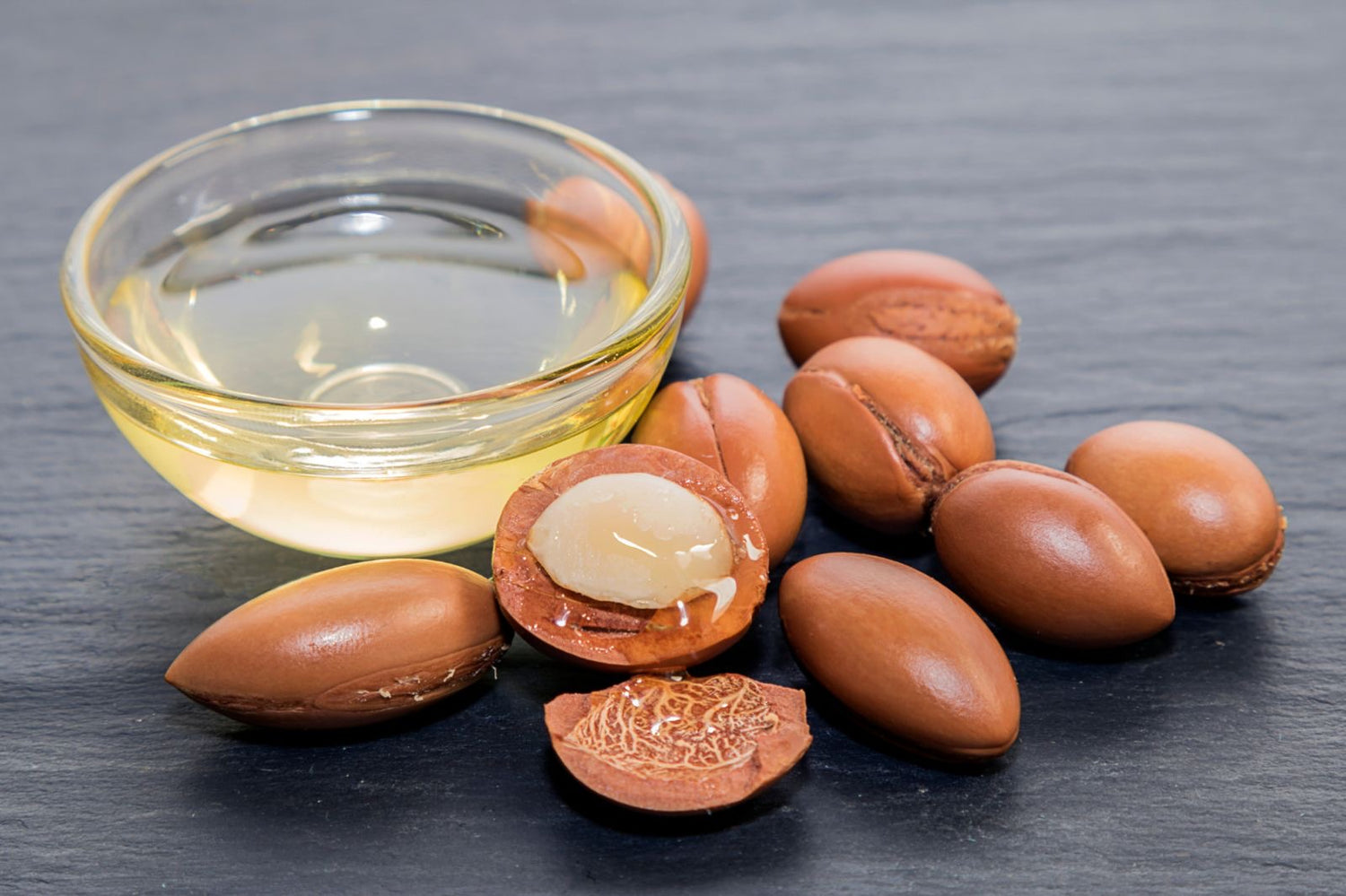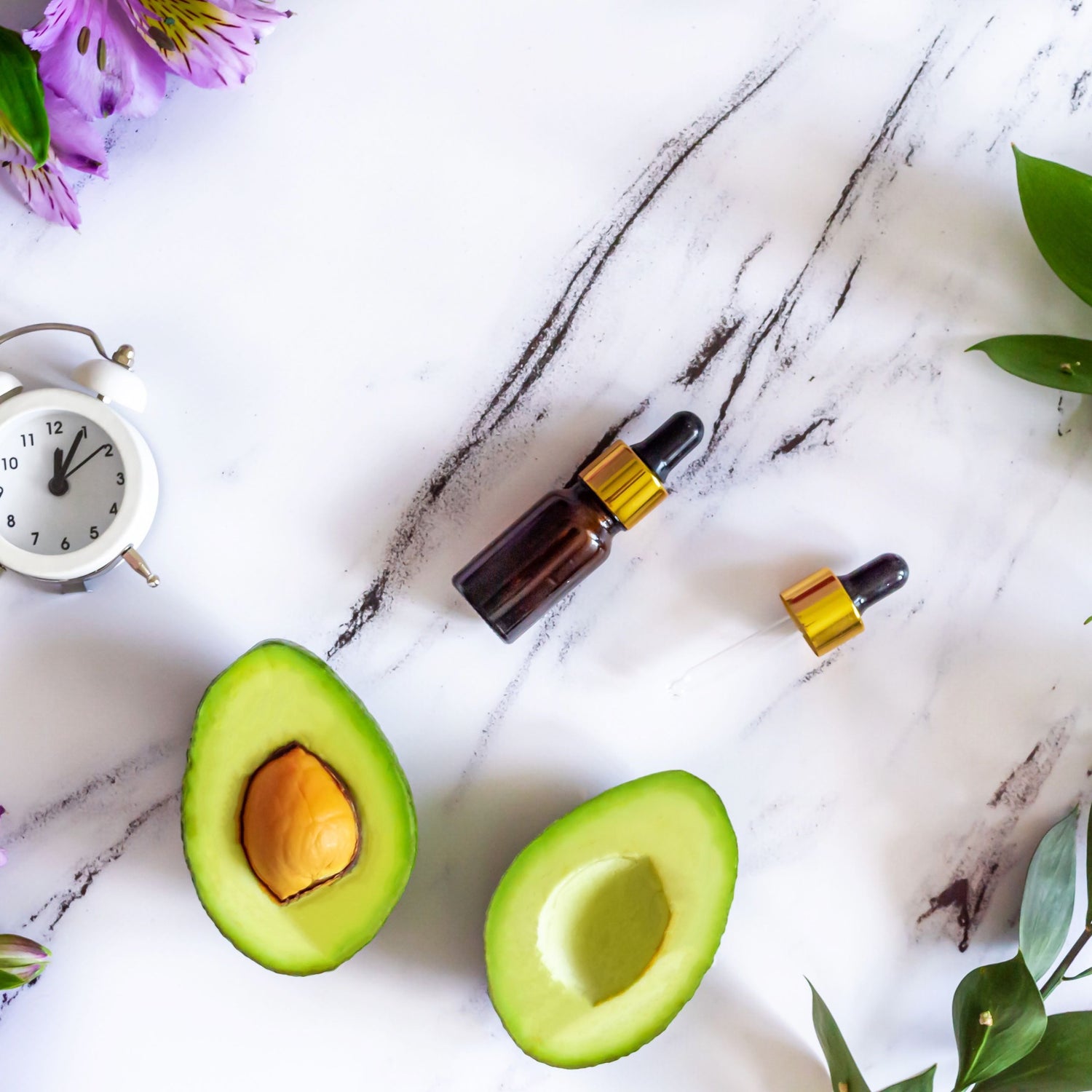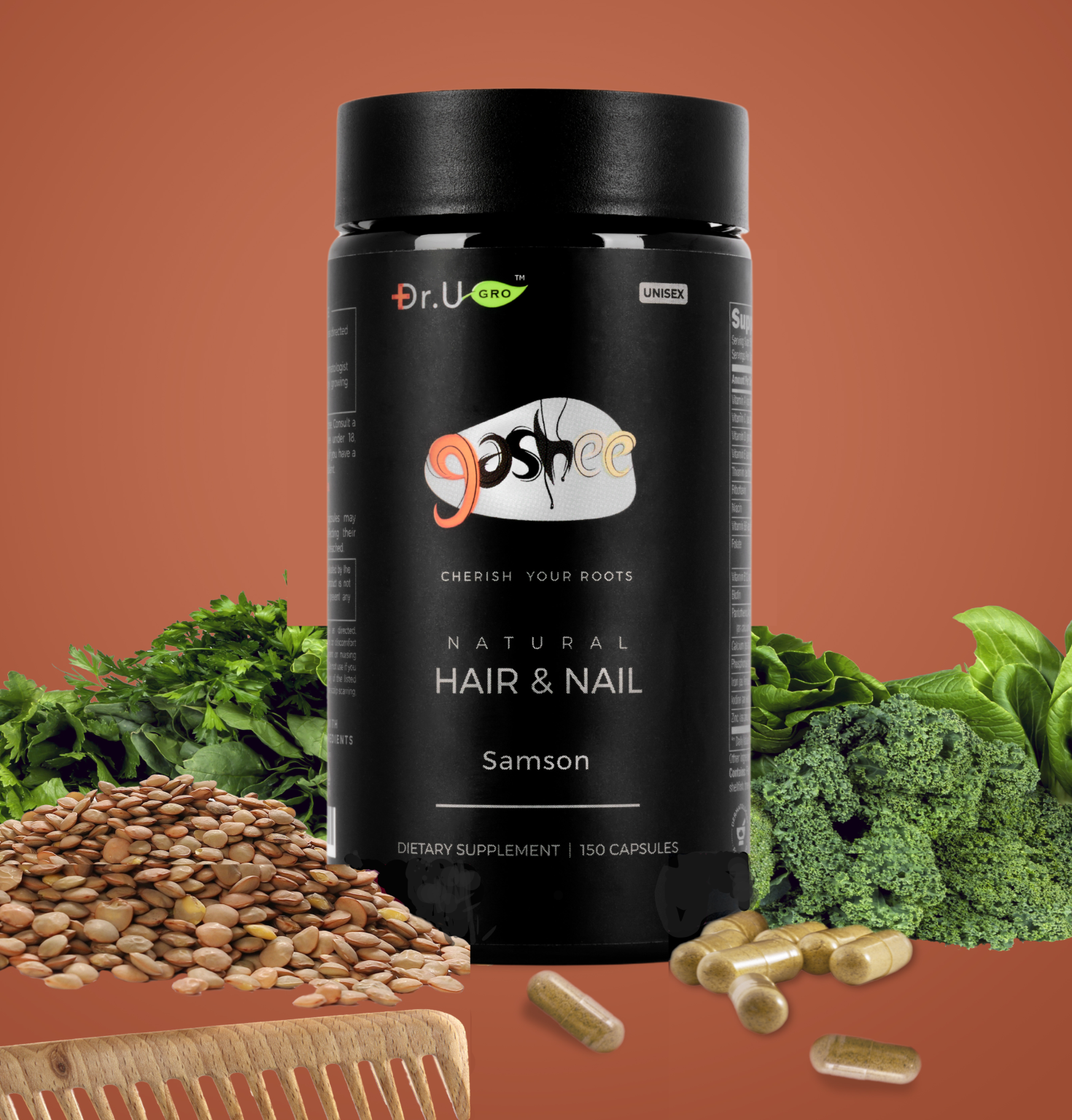Bamboo is considered to be the fastest-growing plant in the world. Another remarkable fact to know is that it also contains higher levels of organic silica beyond any other known source. Researchers believe that this mineral plays a crucial role in supporting the bamboo plant’s resilience to many types of stressors, a possible reason behind its rapid proliferation compared to other plant types. Bamboo extract is now considered a popular dietary supplement, primarily due to its silica content. It improves various structures and functioning of the body but may help improve the quality and growth cycles of the hair.
 The bamboo plant is an abundant source of organic silica, offering a wide range of benefits for healthier hair and body.
The bamboo plant is an abundant source of organic silica, offering a wide range of benefits for healthier hair and body. Silica, A Vital Mineral For Our Health
Silica is a natural form of trace mineral known as silicon. Its scientific name is silicon dioxide, formed when silicon binds with two molecules of oxygen. Silica is found in our waters, our soil, plants as well as human and animal tissue. It is rated as the second most abundant trace element in the world. In our bodies, it is the third most abundant trace mineral. Scientists are now finding that silica may play an essential role in the health of our bones and connective tissue. Silica helps prevent bone absorption by our bodies. We often hear about the importance of calcium and vitamin D needed to absorb this mineral. A 2013 publication in the International Journal of Endocrinology suggests that silica should also be considered a priority, contributing to our bones' strength and mineral density. Researchers believe that silica is used to deposit calcium into our bone structures, a process known as bone mineralization. Studies also show that people with broken bones with high silica levels in their bodies heal much faster than individuals with lower silica.
 Silica improves the health of our bones, skin, and our general physiology.
Silica improves the health of our bones, skin, and our general physiology. Silica is a necessary component for the synthesis of collagen, a prominent protein constituent found within connective tissues in our bodies, according to a 2016 study by Sao Paulo University in Brazil. Additionally, silicon has an alkalinizing effect within the body. Since alkaline foods are generally associated with leafy vegetables, plant-based, minimally processed foods, many medical experts argue that processing matters for our health and not alkalinity. Other studies support the opposite view. One review cites positive effects for the bones, back pain, chemotherapy, growth hormone levels, and the muscles resulting from alkaline diets.
Bamboo Extract Used in Ancient Medicine
The bamboo extract has long been used in traditional medicine systems for thousands of years. In Ayurveda, it is used to prepare a pharmacological mixture called Tabasheer, a white translucent substance made of silica, water, lime, and potash. Within this school of thought, bamboo embodies the principle of Kapha-pitta, with the ability to re-establish balance. In traditional Chinese medicine, bamboo clears phlegm, reduces heat, calms the heart and emotions of fear. In more modern clinical terms, these capabilities are associated with treating issues like delirium, convulsions, acne, fever, coma, epilepsy, whooping cough, stomach problems, rheumatism, and limb numbness.
Bamboo Extract May Support the Youth and Vitality of Our Hair
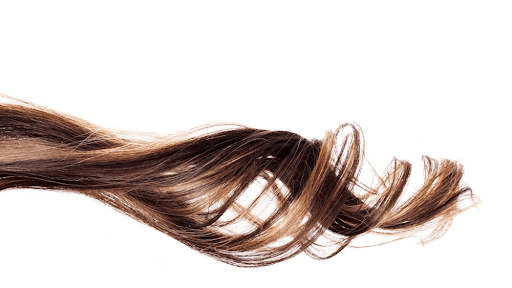 Taking bamboo extract for the hair may improve collagen production, growth ability, and the thickness of the strands.
Taking bamboo extract for the hair may improve collagen production, growth ability, and the thickness of the strands. When offered in more bioavailable forms, the silicon element may improve various characteristics associated with the quality of our hair.
One study observed women with photoaged skin. However, the researchers were interested in seeing if bioavailable silicon (ch-OSA), choline stabilized orthosilicic acid, could produce improvements in their skin and their hair and nails as well [1]. In animals, this particular form of silicon was found to increase the concentration of hydroxyproline, a major component of collagen fibers, in the dermis. For example, in calves, oral supplementation of ch-OSA led to an increased concentration of collagen in the cartilage tissue [2].
The human female subjects of the treatment group were asked to take oral supplements consisting of 10 mg of silicon a day for 20 weeks. At the end of this period, their skin's roughness and mechanical elasticity had significantly improved compared to the placebo group. Also, their hair and nails were less brittle than the control group.
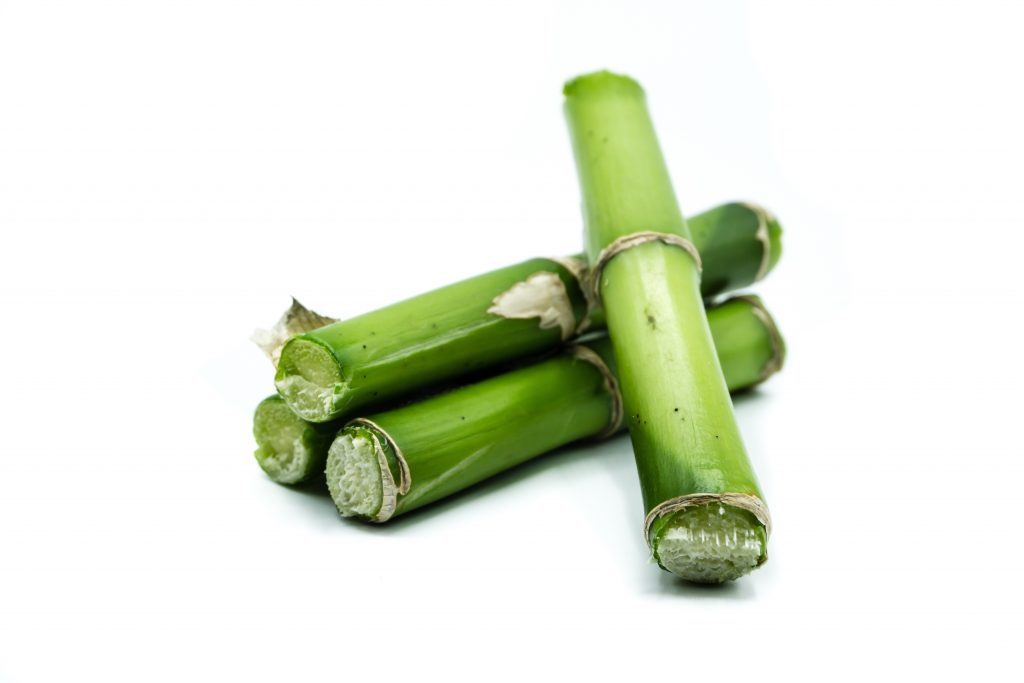 Scientists have studied the effect of silica which bamboo contains, on the quality of hair.
Scientists have studied the effect of silica which bamboo contains, on the quality of hair. In another study, researchers were specifically interested in seeing if the oral intake of orthosilicic acid could improve hair quality [3]. This study involved 48 women with fine hair. The treatment group was given 10 mg of ch-OSA every day for nine months, while the control group was given a placebo. Interestingly, the women who took the silicon supplements showed different forms of improvements in their hair.
In both groups, hair elasticity decreased, but the treatment group showed less of a decline. The control group showed more significant hair breakage at the end of the nine months. But no change was seen in the women who took the supplement. Overall, the ch-OSA intake resulted in better tensile strength of the hair.
The researchers also looked at the thickness of the hair by measuring the cross-sections of individual strands. Surprisingly, hair thickness increased in the women who were treated with the oral supplement.
Choline stabilized orthosilicic acid has a different molecular composition than silica (i.e., silicon dioxide). However, both studies illustrate the profound effect silicon can potentially exert on the hair in terms of texture, strength, and thickness. Further research on more significant numbers of subjects would be needed to confirm these conclusions more fully.
One scientific review published in An Bras Dermatol summarizes that silicon is needed for the optimal synthesis of collagen and plays a role in activating hydroxylating enzymes during this process [4]. In terms of hair benefits, it mentions that higher silicon content “results in a lower rate of hair loss and increased brightness.”
How Does Silicon Work To Affect Our Hair?
 The bamboo extract may help improve the hair’s thickness and growth.
The bamboo extract may help improve the hair’s thickness and growth. As discussed earlier, silicon is an essential element that our bodies need to produce collagen, the most abundant protein found in mammals. It is the main structural protein within the extracellular matrix which forms our connective tissue. But what does collagen have to do with our hair? First, collagen helps to form the structure of our hair follicles. Also, the tissue which surrounds the strands is composed of this protein. Researchers are also finding that this outer collagen influences the actual functioning of the hair follicles. Different studies have shown that the surrounding collagen encloses the hair bulb increases and becomes thicker when the follicle is actively producing new coat during the anagen growth phase. When the hair growth rate slows during the catagen phase, this collagen becomes depleted by losing two layers of this protein tissue.
Within the actual structure of our hair, silicon is present at 1-10ppm. Silicon also plays a more indirect role in the health of our hair. It helps balance our calcium and magnesium levels, which in turn reestablishes the proper balance of our hormones. Not only is this important for preventing osteoporosis, but also other issues related to hormonal imbalance, including hair loss and thinning caused by low estrogen levels in women.
Benefits of Bamboo for Hair and Health, a Rich Bioavailable Source of Silica
One study confirmed the great content of silica in bamboo. However, these amounts can vary depending on the plant species and the processing methods used. The researchers concluded that bamboo is nonetheless an excellent source of silica and a suitable choice for food supplementation and nutraceutical and cosmetic applications.
Taking bamboo extract regularly should be done to benefit the entire body, including the functioning and vitality of the hair follicles. This can be made available through a comprehensive oral supplement with other natural ingredients.
Always consult a doctor when making choices about dietary requirements and supplementation.
Frequently Asked Questions - Bamboo Extract
Can bamboo extract help with androgenic alopecia hair loss?
As noted earlier, the silica in the bamboo extract may help improve collagen production. And this, in turn, may also affect the hair cycle. Androgenic alopecia is primarily caused by genetics and high levels of DHT in the blood. The bamboo extract may help in a general sense but should not be regarded as a treatment for androgenic alopecia.
When can I see results in my hair from taking bamboo extract?
There are no standard timeframes for seeing hair improvements resulting from taking bamboo extract supplementation. Also, many factors affect hair quality and growth for different individuals. Pre-existing health conditions and genetics, for example, are important considerations and the degree of exposure to environmental factors like the sun, diet, and chemical pollutants.
References
- Favaretto G, Campos PMBGM (2016) Influence of an Oral Supplementation Based on Orthosilicic Acid Choline-Stabilized on Skin, Hair, and Nails: A Clinical Study with Objective Approach. Clin Pharmacol Biopharm 5:160. doi:10.4172/2167-065X.1000160.
- M R Calomme, 1, D A Vanden Berghe, Supplementation of Calves With Stabilized Orthosilicic Acid. Effect on the Si, Ca, Mg, and P Concentrations in Serum and the Collagen Concentration in Skin and Cartilage, Biol Trace Elem Res, 1997 Feb;56(2):153-65. DOI: 10.1007/BF02785389.
- R R Wickett, E Kossmann, A Barel, et al., Effect of Oral Intake of Choline-Stabilized Orthosilicic Acid on Hair Tensile Strength and Morphology in Women With Fine Hair. Arch Dermatol Res, 2007 Dec;299(10):499-505. DOI: 10.1007/s00403-007-0796-z. Epub 2007 Oct 25.
- Lidiane Advincula de Araújo, Flavia Addor, An Bras Dermatol, May-Jun 2016;91(3):331-5. doi: 10.1590/abd1806-4841.20163986.


